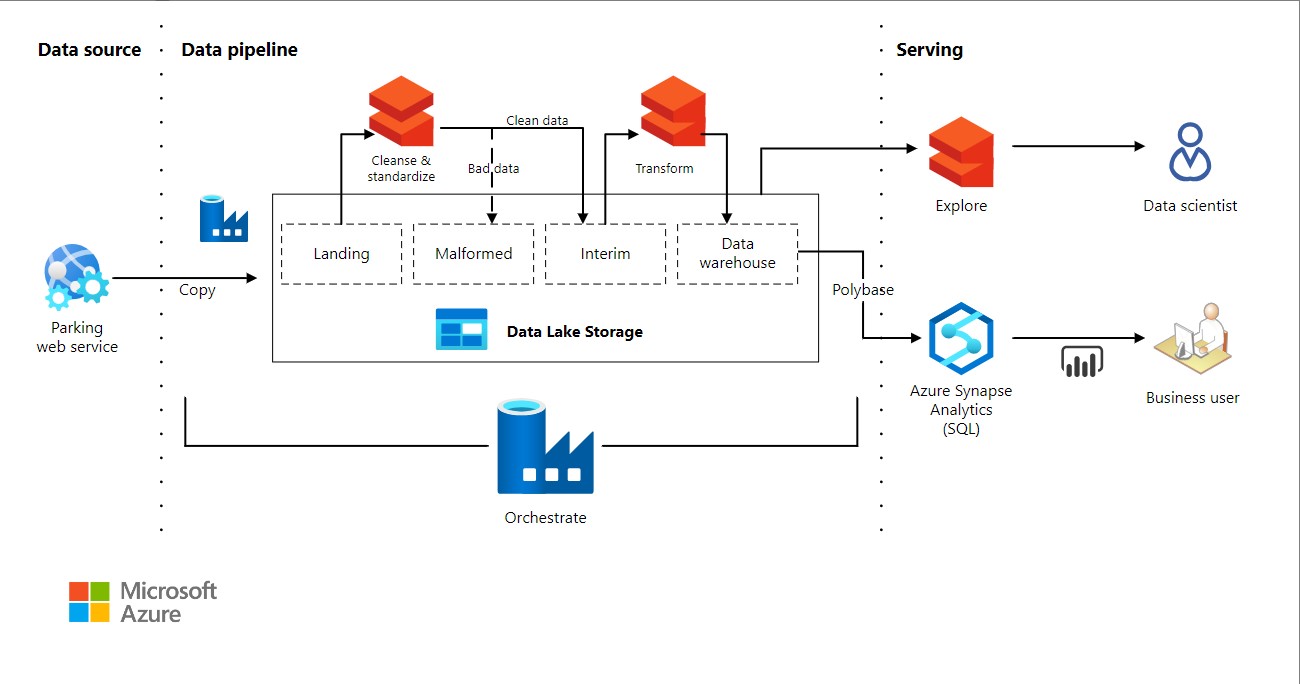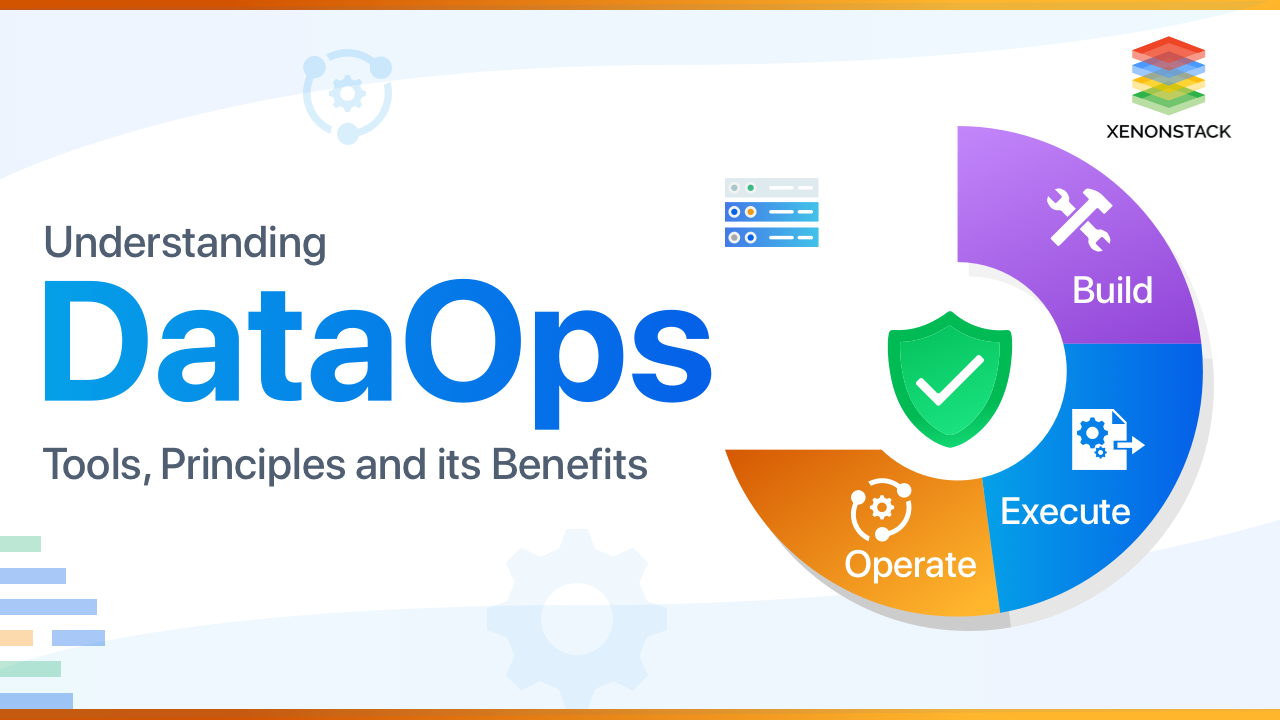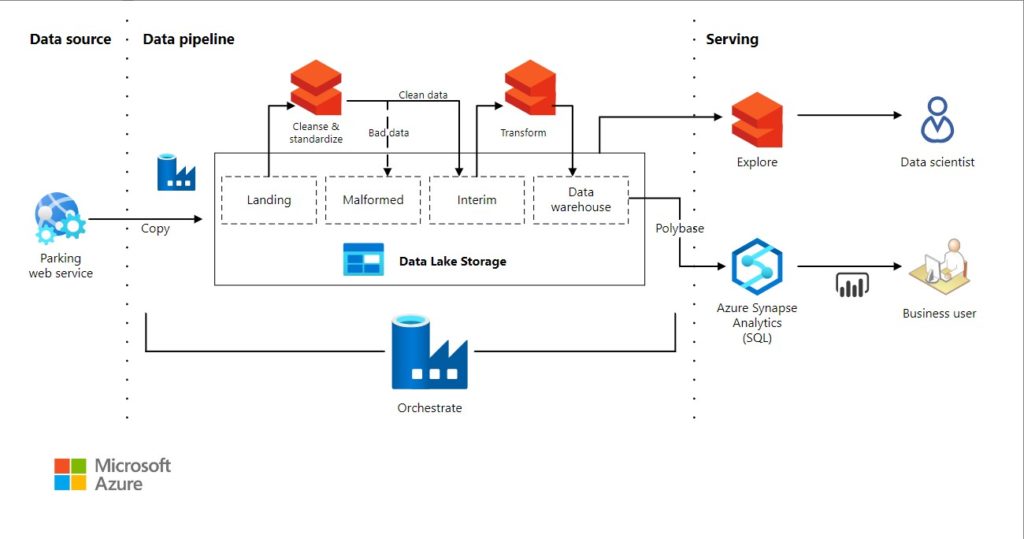Today, we are going to talk about “DataOps with Azure Services” or “The Role of Azure in DataOps“.
DataOps is an emerging approach to data management that emphasizes communication, collaboration, and automation of data flows between data managers and data consumers. In today’s data-driven world, ensuring the quality and reliability of data pipelines is crucial for organizations seeking to reduce cycle times and increase efficiency. In this blog post, we’ll explore “DataOps with Azure Services” and how Azure services can help organizations implement DataOps and streamline their data pipelines.
The Role of Azure in DataOps
Microsoft Azure offers a variety of services and tools designed to support DataOps implementation. From data integration and storage to machine learning and analytics, Azure has solutions that cater to every stage of the data lifecycle. In the following sections, we’ll delve into specific Azure services and their role in DataOps.
 dataops-for-modern-datawarehouse
dataops-for-modern-datawarehouse
Azure Data Factory
Azure Data Factory is a cloud-based data integration service that enables users to create, schedule, and manage data workflows. Supporting a wide range of data sources, Azure Data Factory can handle both on-premises and cloud-based data. With its visual interface and robust orchestration capabilities, Azure Data Factory plays a pivotal role in DataOps by streamlining data pipelines and automating data movement tasks.
Azure Databricks
Built on Apache Spark, Azure Databricks is a collaborative analytics platform that brings data scientists, data engineers, and business analysts together in a shared workspace. This high-performance platform accelerates big data processing and machine learning, making it an invaluable tool for DataOps. By facilitating collaboration and providing a unified environment for data exploration and model development, Azure Databricks empowers teams to work more efficiently and deliver reliable insights.
Azure Data Lake Storage
Azure Data Lake Storage is a highly scalable and secure data storage service designed for big data analytics. Seamlessly integrated with Azure Data Factory and Azure Databricks, Azure Data Lake Storage makes it easy to store and manage vast volumes of structured and unstructured data. In a DataOps context, this service ensures that organizations have a flexible and robust storage solution to support their data processing needs.
Azure Machine Learning
Azure Machine Learning is a comprehensive service that offers a suite of tools for building, training, and deploying machine learning models. By automating the end-to-end machine learning lifecycle, Azure Machine Learning expedites model development and maintenance, which is essential in a DataOps environment. With features like automated machine learning, model interpretability, and MLOps capabilities, Azure Machine Learning enables data scientists to focus on delivering value and improving data quality.
Microsoft Purview
Microsoft Purview is a data governance service offered by Microsoft Azure. It helps organizations discover and manage their data across on-premises, multi-cloud, and software-as-a-service (SaaS) environments. With Azure Purview, organizations can create a holistic, up-to-date map of their data landscape, understand the sensitivity and importance of their data, and set policies to govern its use and security.
Azure Synapse Analytics
Azure Synapse Analytics is an integrated analytics service that combines big data and data warehousing capabilities. It allows users to ingest, prepare, manage, and serve data for immediate business intelligence and machine learning needs. With its powerful query processing engine and seamless integration with other Azure services, Azure Synapse Analytics enhances DataOps by providing a unified platform for data analytics and transformation tasks.
Azure DevOps
While not specifically designed for DataOps, Azure DevOps can be adapted to manage the development, deployment, and monitoring of data pipelines. With its suite of tools for source control, continuous integration, and continuous deployment, Azure DevOps can enhance collaboration between data engineers and data scientists, ensuring that data pipelines are robust, reliable, and up-to-date.
Here comes the end of this article but there is still a lot more to understand about the DataOps tools, Principles, and Benefits.
Head over to this URL for a wide range of Data services being offered by Microsoft Azure.

Conclusion
In summary, Azure offers a comprehensive set of services and tools that can support organizations in implementing DataOps. By harnessing the power of Azure Data Factory, Databricks, Data Lake Storage, Machine Learning, Synapse Analytics, and DevOps, organizations can streamline their data pipelines, improve collaboration, and ultimately drive better business outcomes. If you’re looking to enhance your organization’s data management processes, consider exploring Azure’s offerings and embracing the DataOps approach.

